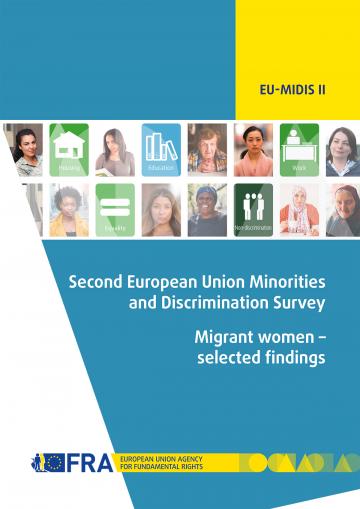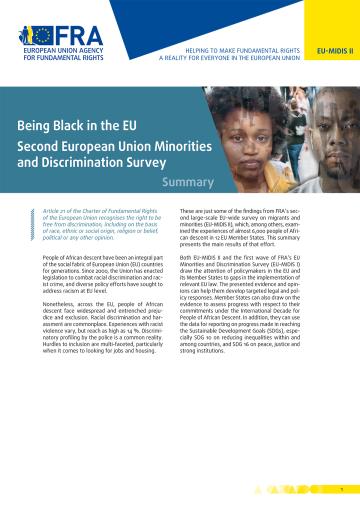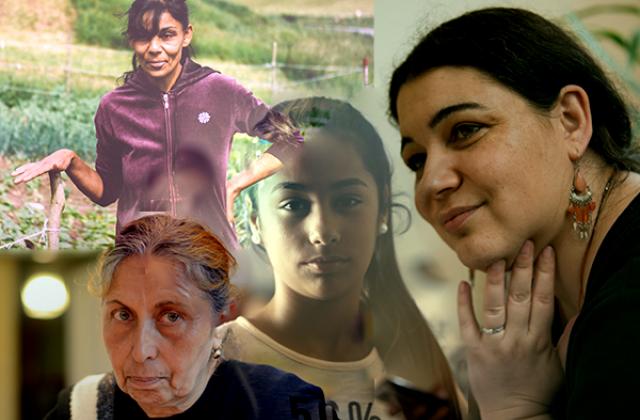
Second European Union Minorities and Discrimination Survey - Migrant women - selected findings
Access interactive country results using our survey data explorer >>
This report examines the results of EU-MIDIS II in relation to immigrants and descendants of immigrants in 19 EU Member States (Austria, Belgium, Cyprus, Denmark, Germany, Greece, Finland, France, Ireland, Italy, Luxembourg, Malta, Netherlands, Poland, Portugal, Slovenia, Spain, Sweden and the United Kingdom).
Among the 16,149 EU-MIDIS II respondents with an immigrant background, half are women (50 %); however, there are substantial variations across countries and the survey’s target groups.
The analysis examines the situation of the women surveyed as compared to that of men, as well as compared with the situation of women from the general population, where feasible. This evidence is useful for European institutions – in particular the Commission, which promotes more gender sensitive migrant integration policies through its ongoing dialogue with Member States, especially concerning actions co-financed through EU funds.
The data, disaggregated by gender and by target group, are, however, particularly useful for Member States, as they can assist them in designing gender sensitive measures targeting the different needs of women of diverse immigrant origins living in the EU.
The report builds on earlier publications based on EUMIDIS II survey data and examines the following areas in a series of chapters:
- Legal status and main reason for migrating;
- Education;
- Employment;
- Discrimination, harassment, violence and rights awareness;
- Values and attitudes.




